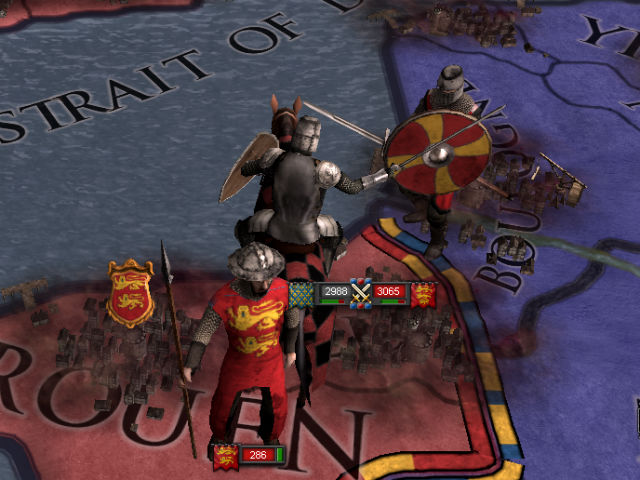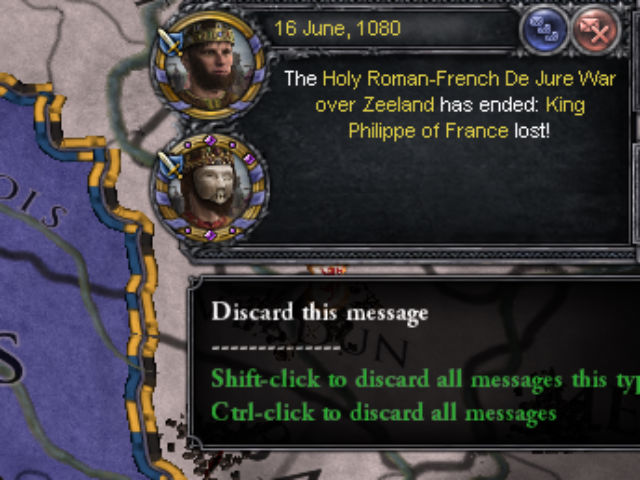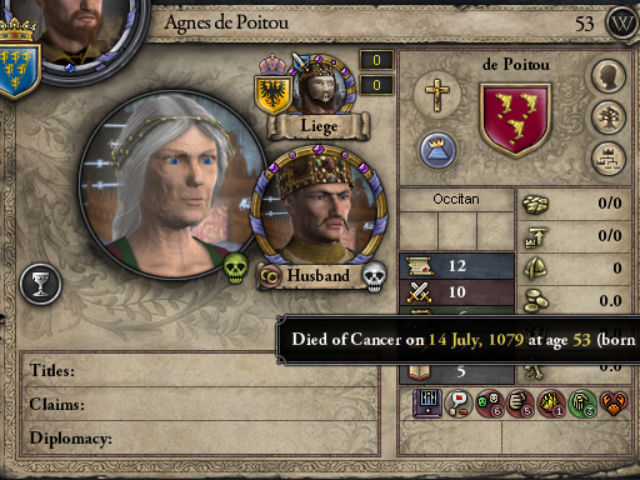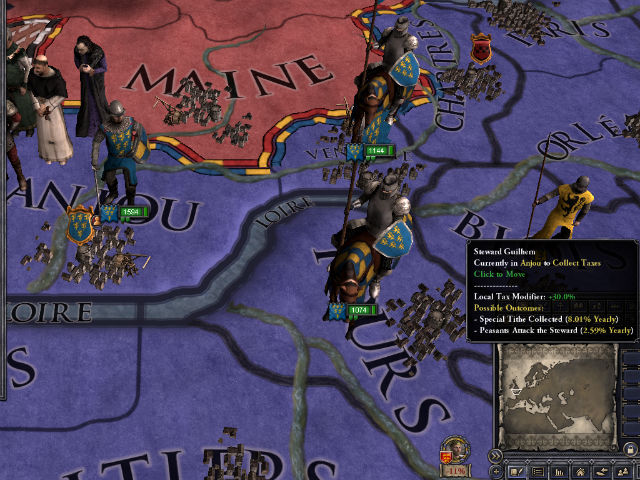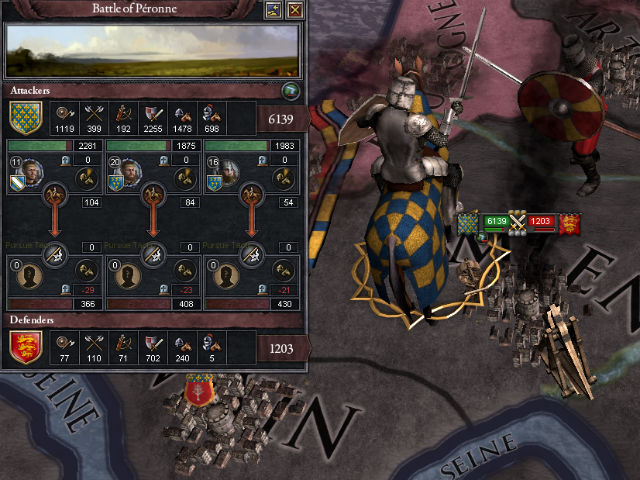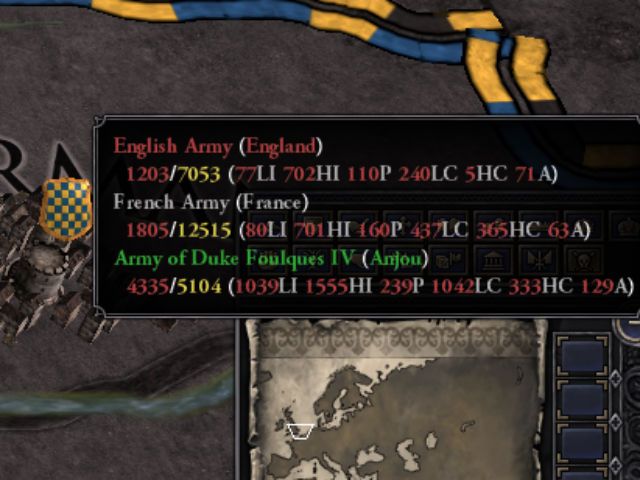Chapter 32 - January 1080
Before Plantagenet - Chapter 32
January 1080 - Anjou, France
The wine was exceptionally sweet.
Foulques sipped his cup as he sat in a chair by the fire. The keep could be drafty in January, and a warm seat before the cackling flames felt good, especially as one took in their day before retiring for the evening.
And it had been a busy one as Foulques and Beatritz entertained Duke Hugues and Duchess Adelaide of Burgundy.
The two women got along swimmingly with plenty to discuss. Adelaide was one of longest serving duchesses in the realm, even longer than Beatritz, despite Foulques’ wife being the older of the two. Adelaide had been the Duchess of Champagne since she was a teenager, and when her husband passed on, she did not wait long before marrying Hugues. She had given the Duke of Burgundy a daughter, Douce, just over a year ago.

Meanwhile, there was plenty of Hugues and Foulques to discuss with the state of the realm.
Zeeland had been occupied by Heinrich’s forces. Philippe had tried to resist, with Duke Boudewijn of Flanders taking part in the battle of Charlieu himself to try to defend his county. The battle was lost, and the Duke of Flanders wounded.
It was a credit to him that he shook off the injury as nothing, despite being 69 years of age. It may have also been foolish - the wound turned gangrenous and the Duke was dead by the end of October.
His son, the 49-year-old Boudewijn VI, inherited Flanders and won Philippe a short-lived victory, but it did little to stop the Emperor’s forces from running roughshod on the eastern counties of the realm.
Suffice to say, Philippe was losing the war. And his advantages over the English were slowly being reversed.
The Frankish king was actually lucky on that front - the Saxons were largely in disarray. King Morcar had died a year before while in Normandy - many suggested he had been murdered. Godwine, the son of Harold, the king deposed by William of Normandy, had been raised in his stead.

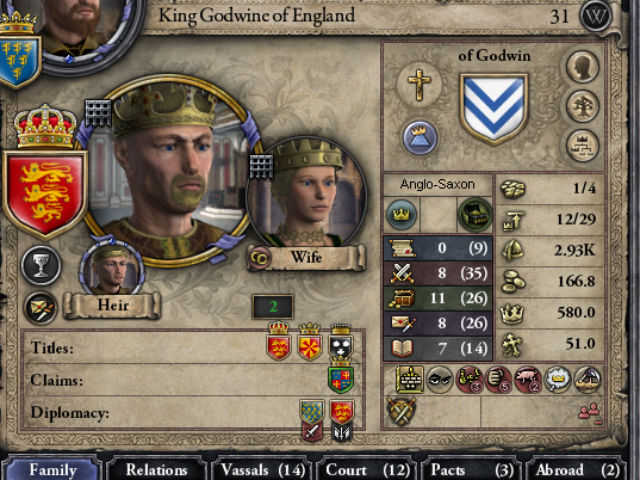
Godwine might have been king, but he did not appear to have great support of the Saxon earls despite being the son of the late Harold, who had lost the crown the William. He had not mustered much of an army, and hardly carried the same martial reputation of the dead Morcar. Thus while he made progress against Philippe, it had been slow.
But to add to the complexity of the situation, Philippe now had a potential challenger for his throne.
Boudewijn was, in fact, Philippe’s first cousin through the king’s paternal aunt. That gave the new Duke of Flanders a claim to the Frankish throne - though it wasn’t the strongest. Not only did Philippe have a younger brother and now a daughter of just over a year old, but every male member of the House of Burgundy’s could argue a stronger right to the throne - a fact that was not lost on Foulques as he hosted one of those members.
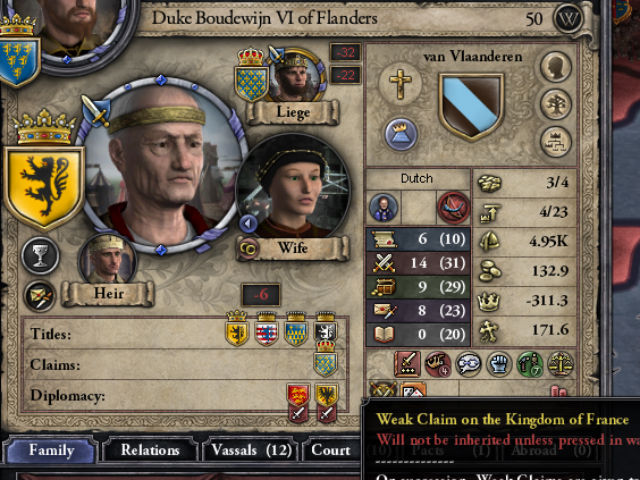
“Care for some company?”
Foulques looked over his shoulder. Duke Hugues stood at his side. Foulques motioned for him to pull up a chair beside him. Hugues did so, sat down and then poured himself some wine.
“I must thank you for your hospitality,” Hugues said. “The duchess has enjoyed herself greatly here. We must return the favor sometime in Burgundy.”
“Perhaps when things are quieter,” Foulques said.
Hugues sighed. “Yes.”
Burgundy was in a bit of turmoil of it’s own at the moment as a count had risen up in an attempt to make Foulques half-brother, and Hugues uncle, Robert, the duke. The revolt had broken out recently, and though Robert had denied any involvement, the situation in the House of Burgundy was tense.

“It appears all across the realm, we suffer trouble,” Hugues lamented. “You are one of the few who finds his home peaceful these days.”
“Duke Guilhem,” Foulques noted.
“Yes, I suppose,” Hugues said. “Though he has problems of his own, from what I hear.”
Foulques nodded and poured himself some more wine.
“I never did get to ask,” Hugues began, “How has my brother-in-law performed as your chancellor so far?”
“Well enough,” Foulques said. “He looks to see if he can secure a claim on Vannes. They stand alone, apart from even the Breton king. It would be easy for me to seize it if he can secure me rights.”
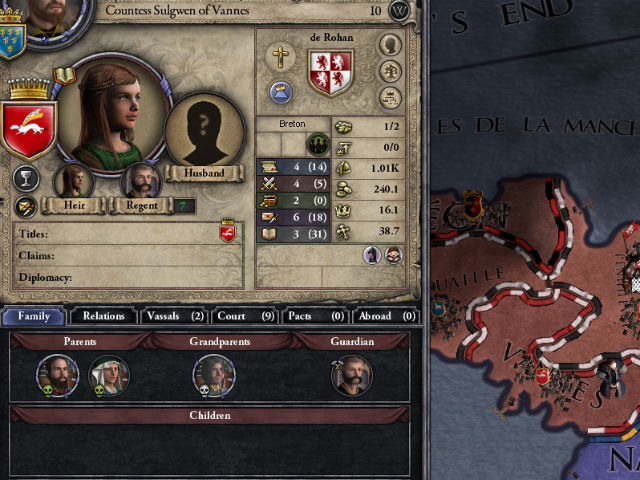
“I am certain he will,” Hugues said. “You have had success with men not trained in the art of diplomacy before, but Godefroy excels at such matters. Speaking of which, how did the Karling take it?”
Foulques shrugged. “He was not pleased. But I keep my court open to he and his family. So he does not voice his discontent.”
That was likely an understatement. Eudes was most angry by his dismissal, and said Foulques was playing favorites with family. In truth, it had little to do with Godefroy being the husband of Helie, Hugues sister, given that Hugues was not a blood relative to Foulques. But the appeal of a more traditional chancellor was too difficult to pass up.
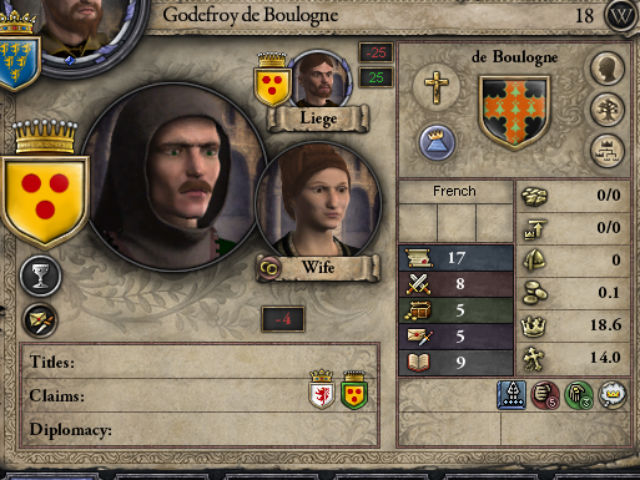
They sat in silence for a few minutes, with nothing but the sound of the crackling fire to fill the air. Since it was late, many of the keep’s residents had turned in for the night. Both men’s wives had. Adelaide no doubt waited for her husband to join her in her chambers - Hugues had spoken quite a bit about how taken he was with her.
Beatritz likely knew she would be alone. She did not know Alearde lay in her husband’s bed, as she often did. Foulques would join her soon enough, after another cup or two of wine.
“Tell me Duke Foulques,” Hugues began, “Do you think of the realm’s future?”
“What do you mean?” Foulques asked. “We have discussed this before.”
“Not the direction my cousin takes it,” Hugues clarified, “But what will become of it when Philippe dies?”
“If he does not sire a son, then perhaps to his daughter? Or if his daughter has a son, her son?” Foulques replied.
“There is a great deal of uncertainty there,” Hugues said. “That does not concern you?”
Foulques sipped his wine, the cup hiding his sly grin. “What uncertainty do you speak of?”
“If something should happen to the king,” Hugues said, “the realm would have a child, a female child no less, on the throne. That will not bode well. Boudewijn would almost certainly claim right to it. Perhaps the king’s brother as well.”
“To say nothing of you, great-grandson of the King of the Franks,” Foulques said.
“Perish the thought,” Hugues said. “I have no desire to steal the throne from a little girl. There is no honor in it.”
“Honor over kingship?” Foulques replied. “You truly are a unique man, Duke Hugues.”
“Honor and tradition,” Hugues said. “I’ll not have the realm turn as Rome did, with rulers standing only as long as they can find support from their soldiers. The problem is if young Adalmode becomes queen, that is exactly what shall happen. Boudewijn will revolt. And I will be forced into action to defend my family’s claim, which is stronger than his. And chaos will reign. We will all grow weaker as a result.”
This is where you tell me how supporting your claim is the only way to save the realm, Foulques thought.
“A concern,” Foulques said. “But the king is young. He has time to produce a son.”
“He may or may not,” Hugues said. “My cousin rushes into battle, and against an opponent far stronger than he. Commendable. But foolish.”
“So then what is your solution?” Foulques asked.
“The dukes of the realm decide who the king’s heir shall be,” Hugues said.
“And if they should happen to choose you, you would not object,” Foulques said.
“Would that not be best,” Hugues asked, “for the time being? If the king produces a son, then I would urge the dukes to elect him. But until then…”
Foulques just sipped his drink. “What does Boudewijn think of such things?”
“I do not speak with him,” Hugues said. “He aims to gain support for his claim and will not back elective succession. After all, he likely does not think he will outlive a king some 20 years his junior.”
“But what of his support?” Foulques asked.
“He has none,” Hugues said. “But his own duchy. Guilhem stays out of such matters as the king’s marshal. I do not know what Toulouse would have done. But… tragic business that.”
And fortunate for you, Foulques thought.
The Duke of Toulouse was dead, killed over the summer on the orders of the Count of Charolais. Having seen their dispute at the king’s wedding, Foulques at first was not surprised. But rumors had spread the count may have been put up to it by Hugues - who feared Toulouse backing Boudewijn in his claim for the throne.
Instead, Toulouse’ young son Guilhem III sat in the ducal chair and in a regency, was in no position to lend his strength anywhere.
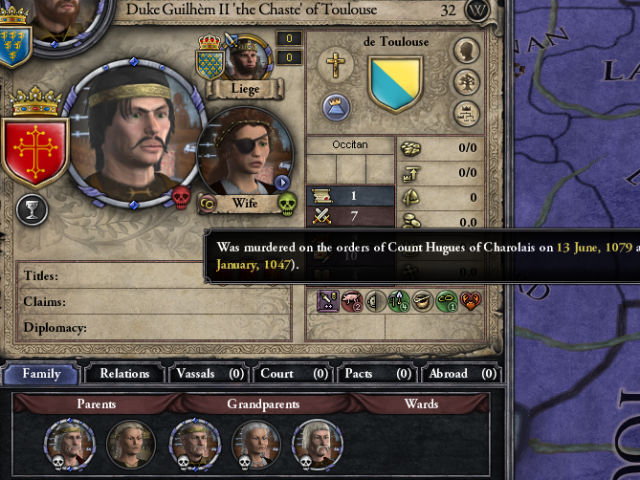
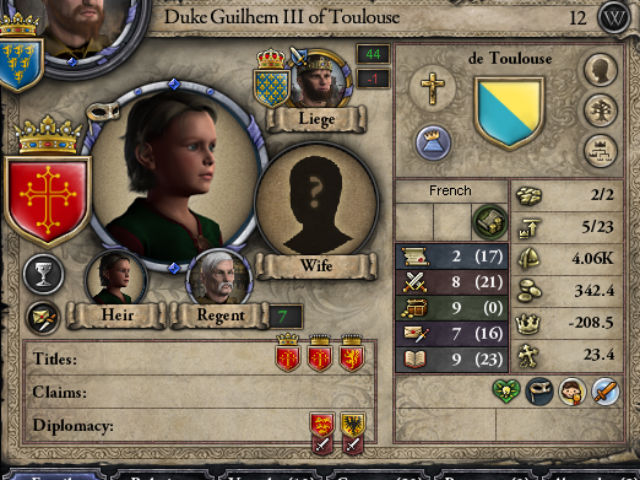
“What of your stepfather?” Foulques asked.
Hugues furrowed his brow. “Etienne of Champagne makes no movement either way. He is in no position to do much at the moment - the Emperor’s armies rampage in his lands.”
“And Berry?” Foulques asked.
“Sits on the king’s council,” Hugues said. “He takes my father’s position as Chancellor. Even if he wasn’t, he is a lap dog. There are counts with more independence than he.”
Foulques chuckled. He did enjoy anytime someone insulted the Duke of Berry.
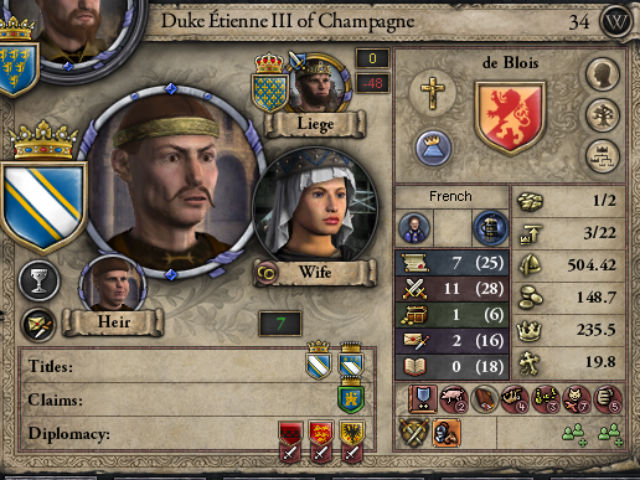
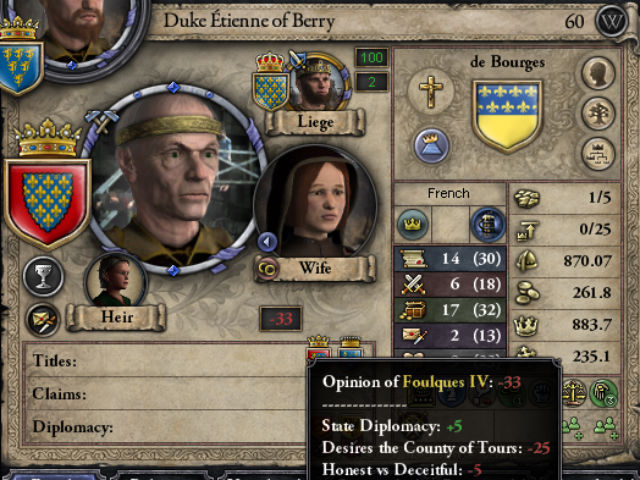
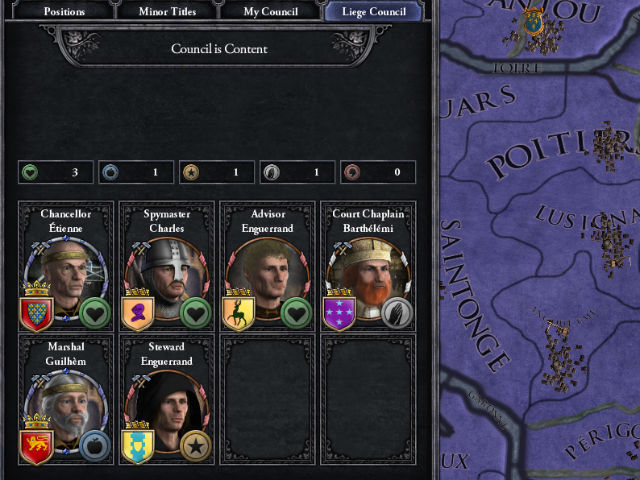
“So, Duke Foulques,” Hugues said, “you carry a great deal of say in the realm these days. But I imagine that fact is not lost on you.”
“Perhaps,” Foulques said. “But what is there to say? I am but a loyal servant to the king.”
“As we all are,” Hugues said. “Except for perhaps Boudewijn.”
The two shared a chuckle over that.
“But as a loyal servant of the king,” Hugues said. “I merely urge you to consider the best way to maintain the state of his realm, and potentially protect his daughter, should the need arise.”
Foulques offered his hand to Hugues.
“I make no promises,” Foulques said. “But I shall consider it.”
Hugues raised his cup. Foulques did the same.
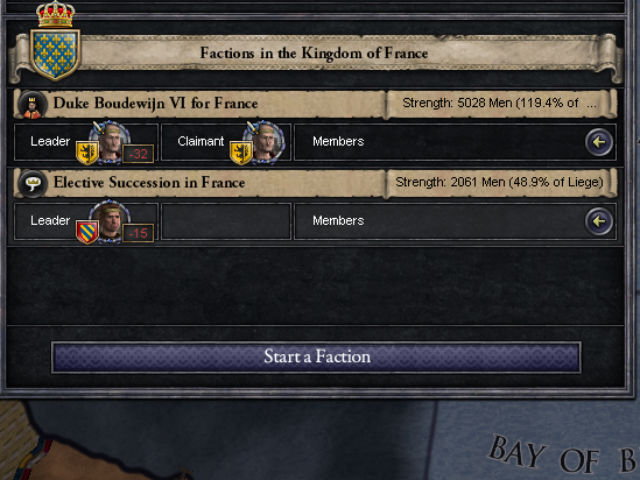
….
As Foulques moved to head to his bed, he thought he heard something. He listened carefully.
Footsteps. He was certain of it.
Rather than call the guards, Foulques moved to inspect it himself.
Tracing the sounds, he moved slowly, and carefully down to his strategy room. He saw no one, but was certain the sound came from there.
Drawing his sword, Foulques entered the room. It was dim, with few candles lit at this time of night.
That’s when Foulques saw a shadow on the far wall.
It was hard to make out - distorted by the light casting it. The figure seemed slight and slender, but Foulques could take no chances, and approached with caution.
The shadow did not move as Foulques approached. Closer and closer he came, preparing to use his sword if ready.
Suddenly the shadow jumped. And a scream echoed in the strategy hall.
Foulques was shocked to find his son Geoffrey, on the floor.
A chill ran through the duke’s spine. He had very nearly…
“What are you doing?” Foulques demanded.
“Father… I…” Geoffrey stammered.
“I thought you an intruder. A burglar or worse,” Foulques said. “I could have easily have slain you, skulking about this time of night.”
“I… I am sorry father!” Geoffrey said. His eyes started to water.
“What were you doing?”
Geoffrey, through sobs felt around him and then picked up a small parchment. A letter.
“I just… wished to read it,” he said.
Foulques narrowed his gaze. The boy was nosy. And what he did could have gotten him killed.
But as he stared at Geoffrey, sobbing and trying his best to hold back tears, Foulques could not bring himself to hurt him. He was nosy, but he was curious. Was it such a bad thing that he took interest in his father’s affairs? They would be his affairs eventually.
“It is improper to ruffle through my letters,” Foulques said. “If you ask, I may let you read them, depending on their contents.”
“Truly?”
“Truly.”
He offered his hand. Geoffrey took it.
“Now then,” Foulques said. “This was merely a letter from the Mayor of Saumur, informing me of the state of trade in his city. Not terribly interesting, I can assure you. But sadly, important.”
Geoffrey nodded, with a nervous smile on his face.
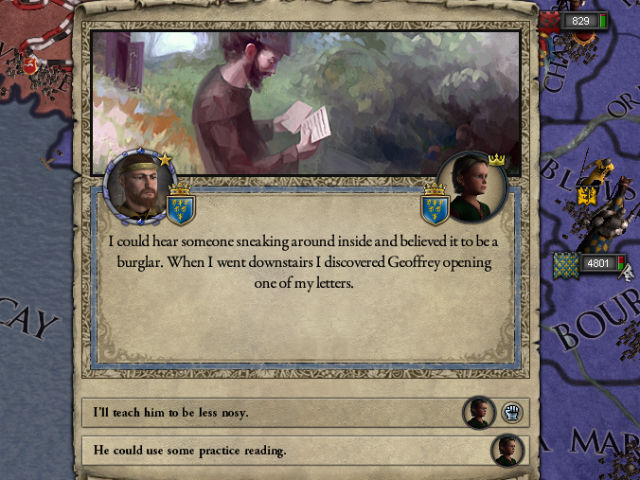
January 1080 - Anjou, France
The wine was exceptionally sweet.
Foulques sipped his cup as he sat in a chair by the fire. The keep could be drafty in January, and a warm seat before the cackling flames felt good, especially as one took in their day before retiring for the evening.
And it had been a busy one as Foulques and Beatritz entertained Duke Hugues and Duchess Adelaide of Burgundy.
The two women got along swimmingly with plenty to discuss. Adelaide was one of longest serving duchesses in the realm, even longer than Beatritz, despite Foulques’ wife being the older of the two. Adelaide had been the Duchess of Champagne since she was a teenager, and when her husband passed on, she did not wait long before marrying Hugues. She had given the Duke of Burgundy a daughter, Douce, just over a year ago.

Meanwhile, there was plenty of Hugues and Foulques to discuss with the state of the realm.
Zeeland had been occupied by Heinrich’s forces. Philippe had tried to resist, with Duke Boudewijn of Flanders taking part in the battle of Charlieu himself to try to defend his county. The battle was lost, and the Duke of Flanders wounded.
It was a credit to him that he shook off the injury as nothing, despite being 69 years of age. It may have also been foolish - the wound turned gangrenous and the Duke was dead by the end of October.
His son, the 49-year-old Boudewijn VI, inherited Flanders and won Philippe a short-lived victory, but it did little to stop the Emperor’s forces from running roughshod on the eastern counties of the realm.
Suffice to say, Philippe was losing the war. And his advantages over the English were slowly being reversed.
The Frankish king was actually lucky on that front - the Saxons were largely in disarray. King Morcar had died a year before while in Normandy - many suggested he had been murdered. Godwine, the son of Harold, the king deposed by William of Normandy, had been raised in his stead.


Godwine might have been king, but he did not appear to have great support of the Saxon earls despite being the son of the late Harold, who had lost the crown the William. He had not mustered much of an army, and hardly carried the same martial reputation of the dead Morcar. Thus while he made progress against Philippe, it had been slow.
But to add to the complexity of the situation, Philippe now had a potential challenger for his throne.
Boudewijn was, in fact, Philippe’s first cousin through the king’s paternal aunt. That gave the new Duke of Flanders a claim to the Frankish throne - though it wasn’t the strongest. Not only did Philippe have a younger brother and now a daughter of just over a year old, but every male member of the House of Burgundy’s could argue a stronger right to the throne - a fact that was not lost on Foulques as he hosted one of those members.

“Care for some company?”
Foulques looked over his shoulder. Duke Hugues stood at his side. Foulques motioned for him to pull up a chair beside him. Hugues did so, sat down and then poured himself some wine.
“I must thank you for your hospitality,” Hugues said. “The duchess has enjoyed herself greatly here. We must return the favor sometime in Burgundy.”
“Perhaps when things are quieter,” Foulques said.
Hugues sighed. “Yes.”
Burgundy was in a bit of turmoil of it’s own at the moment as a count had risen up in an attempt to make Foulques half-brother, and Hugues uncle, Robert, the duke. The revolt had broken out recently, and though Robert had denied any involvement, the situation in the House of Burgundy was tense.

“It appears all across the realm, we suffer trouble,” Hugues lamented. “You are one of the few who finds his home peaceful these days.”
“Duke Guilhem,” Foulques noted.
“Yes, I suppose,” Hugues said. “Though he has problems of his own, from what I hear.”
Foulques nodded and poured himself some more wine.
“I never did get to ask,” Hugues began, “How has my brother-in-law performed as your chancellor so far?”
“Well enough,” Foulques said. “He looks to see if he can secure a claim on Vannes. They stand alone, apart from even the Breton king. It would be easy for me to seize it if he can secure me rights.”

“I am certain he will,” Hugues said. “You have had success with men not trained in the art of diplomacy before, but Godefroy excels at such matters. Speaking of which, how did the Karling take it?”
Foulques shrugged. “He was not pleased. But I keep my court open to he and his family. So he does not voice his discontent.”
That was likely an understatement. Eudes was most angry by his dismissal, and said Foulques was playing favorites with family. In truth, it had little to do with Godefroy being the husband of Helie, Hugues sister, given that Hugues was not a blood relative to Foulques. But the appeal of a more traditional chancellor was too difficult to pass up.

They sat in silence for a few minutes, with nothing but the sound of the crackling fire to fill the air. Since it was late, many of the keep’s residents had turned in for the night. Both men’s wives had. Adelaide no doubt waited for her husband to join her in her chambers - Hugues had spoken quite a bit about how taken he was with her.
Beatritz likely knew she would be alone. She did not know Alearde lay in her husband’s bed, as she often did. Foulques would join her soon enough, after another cup or two of wine.
“Tell me Duke Foulques,” Hugues began, “Do you think of the realm’s future?”
“What do you mean?” Foulques asked. “We have discussed this before.”
“Not the direction my cousin takes it,” Hugues clarified, “But what will become of it when Philippe dies?”
“If he does not sire a son, then perhaps to his daughter? Or if his daughter has a son, her son?” Foulques replied.
“There is a great deal of uncertainty there,” Hugues said. “That does not concern you?”
Foulques sipped his wine, the cup hiding his sly grin. “What uncertainty do you speak of?”
“If something should happen to the king,” Hugues said, “the realm would have a child, a female child no less, on the throne. That will not bode well. Boudewijn would almost certainly claim right to it. Perhaps the king’s brother as well.”
“To say nothing of you, great-grandson of the King of the Franks,” Foulques said.
“Perish the thought,” Hugues said. “I have no desire to steal the throne from a little girl. There is no honor in it.”
“Honor over kingship?” Foulques replied. “You truly are a unique man, Duke Hugues.”
“Honor and tradition,” Hugues said. “I’ll not have the realm turn as Rome did, with rulers standing only as long as they can find support from their soldiers. The problem is if young Adalmode becomes queen, that is exactly what shall happen. Boudewijn will revolt. And I will be forced into action to defend my family’s claim, which is stronger than his. And chaos will reign. We will all grow weaker as a result.”
This is where you tell me how supporting your claim is the only way to save the realm, Foulques thought.
“A concern,” Foulques said. “But the king is young. He has time to produce a son.”
“He may or may not,” Hugues said. “My cousin rushes into battle, and against an opponent far stronger than he. Commendable. But foolish.”
“So then what is your solution?” Foulques asked.
“The dukes of the realm decide who the king’s heir shall be,” Hugues said.
“And if they should happen to choose you, you would not object,” Foulques said.
“Would that not be best,” Hugues asked, “for the time being? If the king produces a son, then I would urge the dukes to elect him. But until then…”
Foulques just sipped his drink. “What does Boudewijn think of such things?”
“I do not speak with him,” Hugues said. “He aims to gain support for his claim and will not back elective succession. After all, he likely does not think he will outlive a king some 20 years his junior.”
“But what of his support?” Foulques asked.
“He has none,” Hugues said. “But his own duchy. Guilhem stays out of such matters as the king’s marshal. I do not know what Toulouse would have done. But… tragic business that.”
And fortunate for you, Foulques thought.
The Duke of Toulouse was dead, killed over the summer on the orders of the Count of Charolais. Having seen their dispute at the king’s wedding, Foulques at first was not surprised. But rumors had spread the count may have been put up to it by Hugues - who feared Toulouse backing Boudewijn in his claim for the throne.
Instead, Toulouse’ young son Guilhem III sat in the ducal chair and in a regency, was in no position to lend his strength anywhere.


“What of your stepfather?” Foulques asked.
Hugues furrowed his brow. “Etienne of Champagne makes no movement either way. He is in no position to do much at the moment - the Emperor’s armies rampage in his lands.”
“And Berry?” Foulques asked.
“Sits on the king’s council,” Hugues said. “He takes my father’s position as Chancellor. Even if he wasn’t, he is a lap dog. There are counts with more independence than he.”
Foulques chuckled. He did enjoy anytime someone insulted the Duke of Berry.



“So, Duke Foulques,” Hugues said, “you carry a great deal of say in the realm these days. But I imagine that fact is not lost on you.”
“Perhaps,” Foulques said. “But what is there to say? I am but a loyal servant to the king.”
“As we all are,” Hugues said. “Except for perhaps Boudewijn.”
The two shared a chuckle over that.
“But as a loyal servant of the king,” Hugues said. “I merely urge you to consider the best way to maintain the state of his realm, and potentially protect his daughter, should the need arise.”
Foulques offered his hand to Hugues.
“I make no promises,” Foulques said. “But I shall consider it.”
Hugues raised his cup. Foulques did the same.

….
As Foulques moved to head to his bed, he thought he heard something. He listened carefully.
Footsteps. He was certain of it.
Rather than call the guards, Foulques moved to inspect it himself.
Tracing the sounds, he moved slowly, and carefully down to his strategy room. He saw no one, but was certain the sound came from there.
Drawing his sword, Foulques entered the room. It was dim, with few candles lit at this time of night.
That’s when Foulques saw a shadow on the far wall.
It was hard to make out - distorted by the light casting it. The figure seemed slight and slender, but Foulques could take no chances, and approached with caution.
The shadow did not move as Foulques approached. Closer and closer he came, preparing to use his sword if ready.
Suddenly the shadow jumped. And a scream echoed in the strategy hall.
Foulques was shocked to find his son Geoffrey, on the floor.
A chill ran through the duke’s spine. He had very nearly…
“What are you doing?” Foulques demanded.
“Father… I…” Geoffrey stammered.
“I thought you an intruder. A burglar or worse,” Foulques said. “I could have easily have slain you, skulking about this time of night.”
“I… I am sorry father!” Geoffrey said. His eyes started to water.
“What were you doing?”
Geoffrey, through sobs felt around him and then picked up a small parchment. A letter.
“I just… wished to read it,” he said.
Foulques narrowed his gaze. The boy was nosy. And what he did could have gotten him killed.
But as he stared at Geoffrey, sobbing and trying his best to hold back tears, Foulques could not bring himself to hurt him. He was nosy, but he was curious. Was it such a bad thing that he took interest in his father’s affairs? They would be his affairs eventually.
“It is improper to ruffle through my letters,” Foulques said. “If you ask, I may let you read them, depending on their contents.”
“Truly?”
“Truly.”
He offered his hand. Geoffrey took it.
“Now then,” Foulques said. “This was merely a letter from the Mayor of Saumur, informing me of the state of trade in his city. Not terribly interesting, I can assure you. But sadly, important.”
Geoffrey nodded, with a nervous smile on his face.

Last edited:
- 1



